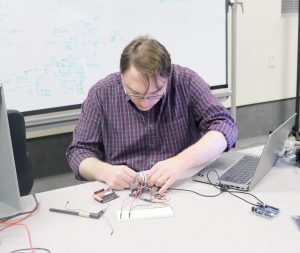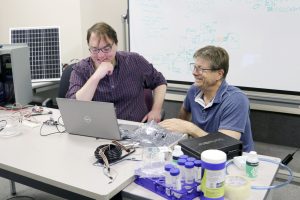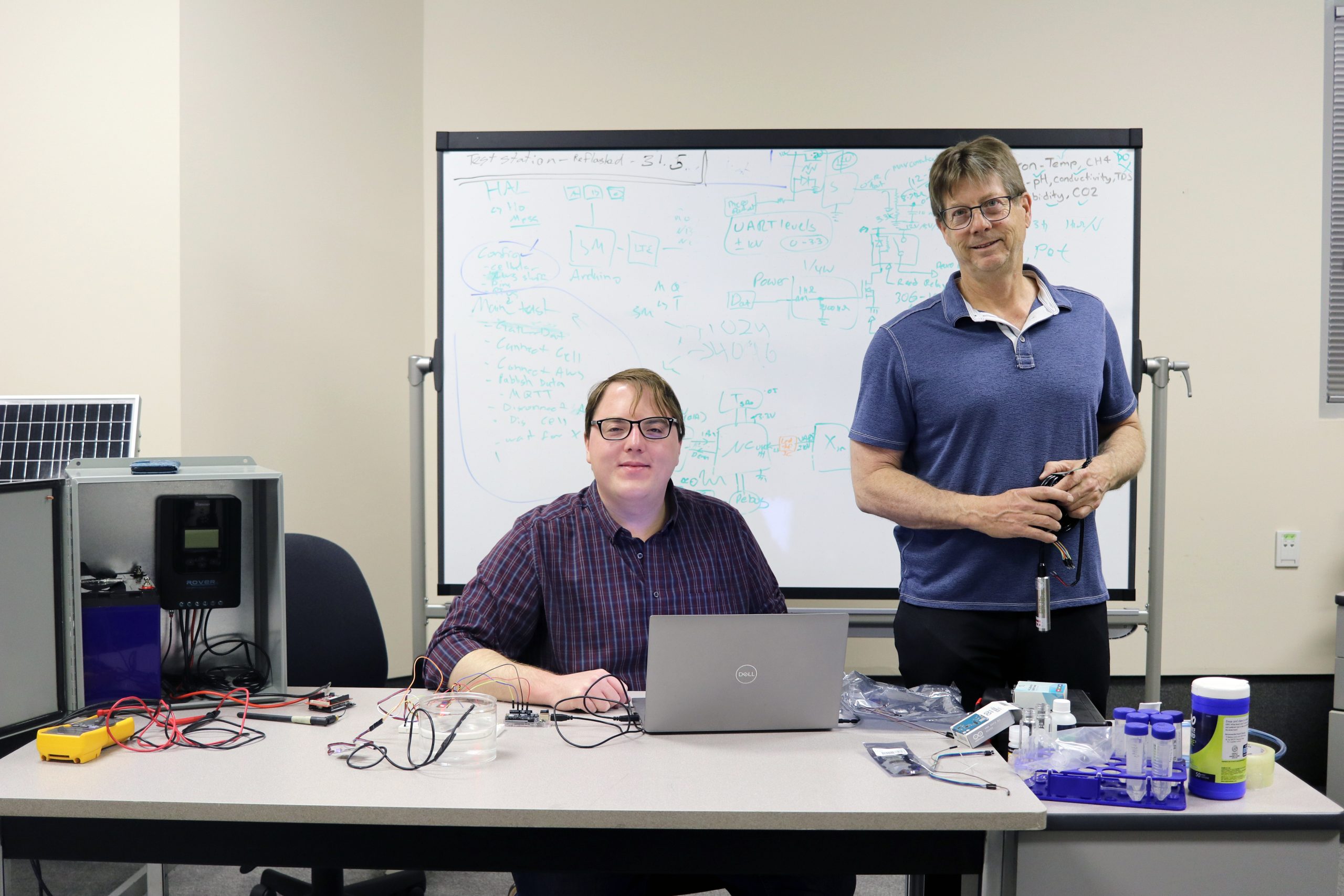BCIT Bachelor of Science in Applied Computer Science student Spencer Loren has earned high praise from Jonathan Bassan, Director of BCIT Centre for Internet of Things (IoT) for his contributions to the Environmental Monitoring and Analysis (EMA) YVR Water Monitoring project.
The Vancouver International Airport (YVR), situated on Sea Island at an elevation of 3.05 meters, faces unique risks from rising sea levels, high Fraser River flood levels, and storm surges. To proactively manage these environmental challenges, YVR collaborated with the BCIT IoT team to create a monitoring system that continuously analyzes surrounding water quality. This system tracks parameters like pH balance, conductivity, dissolved oxygen, water temperature, turbidity, and total dissolved solids (TDS) to give real-time insights for better predictive management.
The EMA YVR Water Monitoring Project started as an Industry Sponsored Student Project (ISSP) between the BCIT Centre for Applied Research and Innovation (CARI) and the YVR Innovation Hub. Spencer began contributing to the project in 2022 as part of a multidisciplinary team of students from the School of Energy and School of Computing and Academic Studies. Under Jonathan’s guidance, the team developed a web-based dashboard for real-time monitoring and tracking of water conditions at YVR. From the start, Spencer stood out for his strong academic and leadership skills, quickly becoming a natural team leader.

“Spencer has an impressive ability to see the big picture, guiding his team with a clear vision and drawing critical connections between different project components,” Jonathan notes. “At the same time, his attention to detail is exceptional. He’s a natural leader with a broad understanding of how each piece fits into the larger system.”
Recognizing Spencer’s potential, Jonathan invited him to continue his work on the YVR IoT project as a summer student with CARI’s MAKE+ applied research group, where he focused on developing the water monitoring device with MAKE+ Project Leader Garrett Kryt. Additionally, Spencer collaborated with Jonathan to design the IoT Course Demo—a user-friendly demonstration device for students with little to no coding or electronics experience, providing hands-on reinforcement of IoT fundamentals.
Spencer is expected to graduate from BCIT in the summer of 2025 and his future in the IoT field looks exceptionally promising. Jonathan shares, “Spencer’s future employers will be very lucky to have him as he is undoubtedly the top IoT student in BC right now.”

In reflecting on his experiences, Spencer says, “Working with BCIT CARI has been a transformative experience, where I had the chance to apply my knowledge to real-world problems and grow both technically and personally. The support from Jonathan and the CARI team was invaluable, and it’s exciting to think about bringing these skills to future projects and making an impact in the IoT field.”
Find out more about the Centre for Internet of Things (IoT) at CARI and our online courses here
Applied research is at the heart of student learning
Applied research is at the heart of what makes BCIT unique. Integrated across all BCIT schools and programs, student applied research goes by many names —experiential learning, work-integrated learning (WIL), capstone projects, directed studies, and industry-sponsored student projects (ISSP). Whatever it’s called, the impact is undeniable.
Through applied research, students work on real-world challenges, gaining practical experience that is invaluable for their future careers. These hands-on projects not only enhance learning but also build direct connections with industry, foster innovation, and lead to the development of new technologies. Each year, BCIT students participate in thousands of applied research projects, solving complex industry problems while contributing fresh, innovative solutions.
BCIT stands apart by embedding applied research into the education of most students, particularly those in programs of two years or longer. This unique approach ensures that graduates are prepared for the workforce and have a strong industry network and the skills to drive innovation in their fields.
